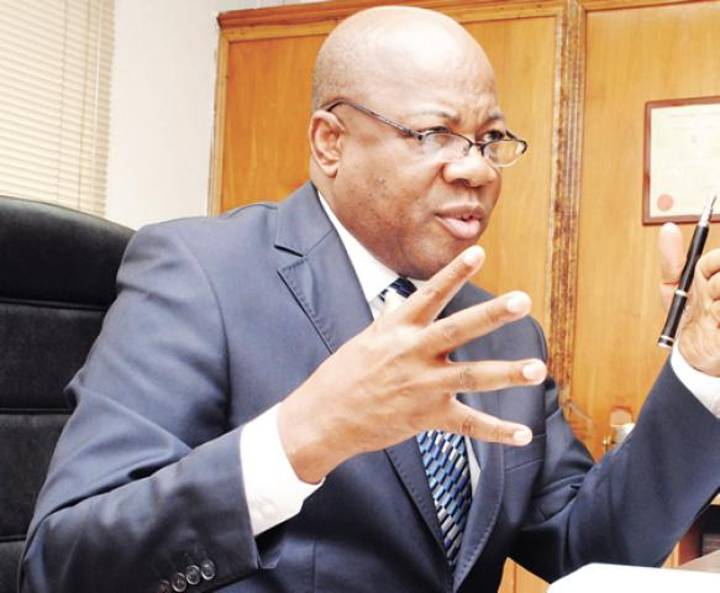Dr Olisa Agbakoba, SAN, penned the Chairman of the Independent National Electoral Commission (INEC), Professor Mahmood Yakubu, on the interpretation of Section 134 of the Constitution of the Federal Republic of Nigeria.

In the letter dated 17th January 2023 and cited below, Agbakoba showered encomiums on the INEC Chairman and raised some concerns on the correct interpretation of section 134 that provides requirements to be met by a Presidential candidate for the office of the President of Nigeria. Read more below and share your comments.
*******************************************************************
The Chairman,
Independent National Electoral Commission (INEC)
F.C.T Abuja.
Dear Prof. Yakubu,
RE: CLARIFICATION ON SECTION 134 OF THE 1999 CONSTITUTION
I write to commend INEC on the great job to ensure free, fair, verifiable, credible and transparent elections. However, I am a little worried. Many concerned Nigerians contacted me about the correct interpretation of section 134 of the 1999 Constitution that provides requirements to be met by a Presidential candidate in relation to the office of the President of Nigeria. Section 134 of the 1999 Constitution provides as follows:
(1) A candidate for an election to the office of President shall be deemed to have been duly elected, where, there being only two candidates for the election –
(a) he has the majority of votes cast at the election; and
(b) he has not less than one-quarter of the votes cast at the election in each of at least two-thirds of all the States in the Federation and the Federal Capital Territory, Abuja.
(2) A candidate for an election to the office of President shall be deemed to have been duly elected where, there being more than two candidates for the election-
- he has the highest number of votes cast at the election;
and
(b) he has not less than one-quarter of the votes cast at the election in each of at least two-thirds of all the States in the Federation and the Federal Capital Territory, Abuja.
I reviewed section 134 carefully, specifically, subsections 134 (1) (b) and (2) (b), and wondered if “two-thirds of all the States in the Federation and the Federal Capital Territory, Abuja” means either of the following:
- a) that a presidential candidate must score not less than one-quarter of the votes cast at the election in each of at least two-thirds of all the States in the Federation which means 24 states, the 24 States will include the Federal Capital Territory Abuja as a “State”, or
- b) that a presidential candidate must score not less than one-quarter of the votes cast at the election in each of at least two-thirds of all the States in the Federation which means 24 states and in addition to meeting the one-quarter requirement in 24 states, a candidate must also win one-quarter of the votes cast in the Federal Capital Territory, Abuja. In this sense, a Presidential candidate must have one-quarter of the votes cast in the Federal Capital Territory, Abuja, in addition to scoring not less than one-quarter of the votes cast at the election in 24 States of the Federation, to be duly elected.
The above possible interpretations raise three major questions:
- is the requirement that a presidential candidate must score not less than one-quarter of the votes cast at the election in each of at least two-thirds of the 36 States of the Federation; does this mean that the Federal Capital Territory, Abuja is incorporated in the 24 States? Or
- is the requirement that a presidential candidate must score not less than one-quarter of the votes cast at the election in each of at least two-thirds of the 36 States of the Federation; does it mean that the presidential candidate must also score not less than one-quarter of the votes cast at the election at the Federal Capital Territory, Abuja?
- can a candidate that scored not less than one-quarter of the votes cast at the election in 36 States of the Federation but fails to score one-quarter of the votes cast at the election at the Federal Capital Territory, be duly elected as President of Nigeria?
Finally, section 134(1)(a) provides that a candidate for an election to the office of President shall be deemed to have been duly elected, where, there being only two candidates for the election, the candidate has the majority of votes cast at the election, but section 134(2) provides that a candidate for an election to the office of President shall be deemed to have been duly elected where, there being more than two candidates for the election, the candidate has the highest number of votes cast at the election. The Constitution describes the winner in two different languages. One, the winner must score the majority of votes and the other, the winner must score the highest number of votes. This is confusing.
To be honest, I am not quite sure of the right answers to my questions. I just thought to bring this to your attention as something you might wish to clarify to the public.
Please accept assurances of my highest regards, in the great work you are doing.
Sincerely,
Dr. Olisa Agbakoba SAN
You can also read the letter below:
Olisa Agbakoba's Letter - INEC Clarification on Section 134 - 17 January 2023Support InfoStride News' Credible Journalism: Only credible journalism can guarantee a fair, accountable and transparent society, including democracy and government. It involves a lot of efforts and money. We need your support. Click here to Donate
